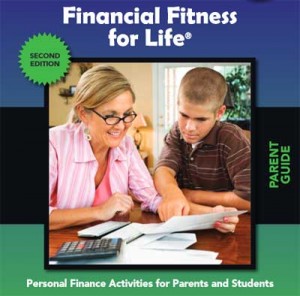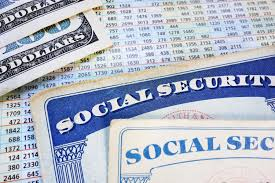 Parents teach their children all kinds of things that are useful as the kids take off on their own. But too many parents don’t make personal finances part of their family education.
Parents teach their children all kinds of things that are useful as the kids take off on their own. But too many parents don’t make personal finances part of their family education.
A survey by Bank of America and USA Today indicated that one in three millennials didn’t learn how to manage their money before leaving home. Schools also failed, by and large, to pick up where the parents failed. Only 19 states require finance education as a condition for graduation. All this in the face of certain understanding that a knowledge of basic finances is key to successful adult living.
Financial experts suggest that at least five of those basics, to be mastered before an individual reaches age 30, would include:
Learn to create and then stick to a budget. That is your concrete picture of where your money comes from and where it goes so you face no surprises. Saves you coming to grips with the reality after the money is gone. Rather than just a simple income and outgo device, let it guide you in determining your mandatory expenses and what to do with what is left, ideally including some savings. Make use of some of the free mobile apps such as Mint and Mvelopes to track income and expenses. Faithfully keep tabs and make adjustments as necessary. There’s no such thing as a successful “set it and forget it” budget.
Live not within but below your means. Studies show that more than 20 percent of millennials spend more than they earn. That’s asking for financial disaster.
Not only are they going behind month to month, scraping to rob Peter to pay Paul, but they are ignoring the future, with no preparations for retirement. You can only build wealth by living below your income and investing a portion. It may call for some sacrifices. Look at your habits and see if you can save on eating out and bypassing some of the “impulse buying” that keeps you broke. Such a simple tactic as cutting out a $7 lunch could save you $1,680 in a year. Save the eating out for special occasions, not routine practice. Set up a small but automatic deposit to a savings account. Even a $25 infusion every two weeks can build up to $6.50 in a year.
Manage credit. Credit cards are costly. Today’s young workers tend to overuse them and other credit matters. Try to avoid a balance than goes on month to month, draining off interest. Make more than minimum payments every chance you get and avoid late fees at all costs, because they cost. Your credit score will thank you. It hurts when you max out your cards and pay late. A bad score, in turn, will be a serious factor when you consider major purchases such as a home or car. If you are depending on a credit card for large purchases, chances are you should reconsider the purchases.
Build an emergency fund. Millennials tend to ignore such advice. Only 33 percent have a fallback plan for emergencies. When you are just starting out in a career and facing the expenses of adulthood, it might seem impossible. But you should think of an emergency fund as an essential, not a luxury. If you suddenly face a medical emergency, major car or appliance repair or other unexpected expense, you’ll figure out the difference very quickly. The answer to such an emergency too often is to call on the credit card, and that just exacerbates the financial impact.
Again, the automatic savings deposit in the amount you can reasonably afford, is the answer. Any windfall, no matter how small, should go into the fund. Couldn’t make it to that brunch you had planned? Into the emergency fund the savings goes. And so forth.
Save for retirement. It seems a long way into the future, but it has a way of sneaking up on you. Only 29 percent of the millennials in the survey said they have started a retirement cushion. At their stage in life, concerns about retirement are competing with student loans that seem never to end. But starting early on retirement savings gives you the advantage of compound interest. That can mean a much cushier cushion when retirement arrives. The numbers show it. If you save $100 per month in a retirement account that earns 8 percent interest, it will mount up to $135,000 over 30 years. Delay the start of a retirement account by 10 years and you’ll have just over $55,000 – the difference between a comfortable retirement and a whole lot of penny-pinching.
Highly Recommended
Free Financial Education Course: You’ll find a 36 module curriculum to enhance your financial education. The site is free and can be used by parents, teachers or anyone interested in personal finance education.
AFSA Education Foundation: Offers numerous free downloads containing all types of personal finance education. Courses are free and cover all aspects of money management.
Dan Kadlec: Dan Kadlec writes articles about personal finance, the economy and financial education for TIME, Money, CBS and USA Today among others. Articles focus on a range of interesting topics everyone can benefit from.
The Council for Economic Education (CEE): This organization is a leader in financial education for grades K-12 and have been in existence for over 65 years. They train over 55,000 teachers a year and their teaching influences 5 million students throughout the United States.
Economic and Personal Finance Resources For K-12: Teachers will find over 435 financial literacy lessons to choose from.
Financial Fitness: You’ll find a 108 page document helping parents teach their children about financial literacy. Sections include learning about checking accounts, debit cards, credit cards and setting a budget.



